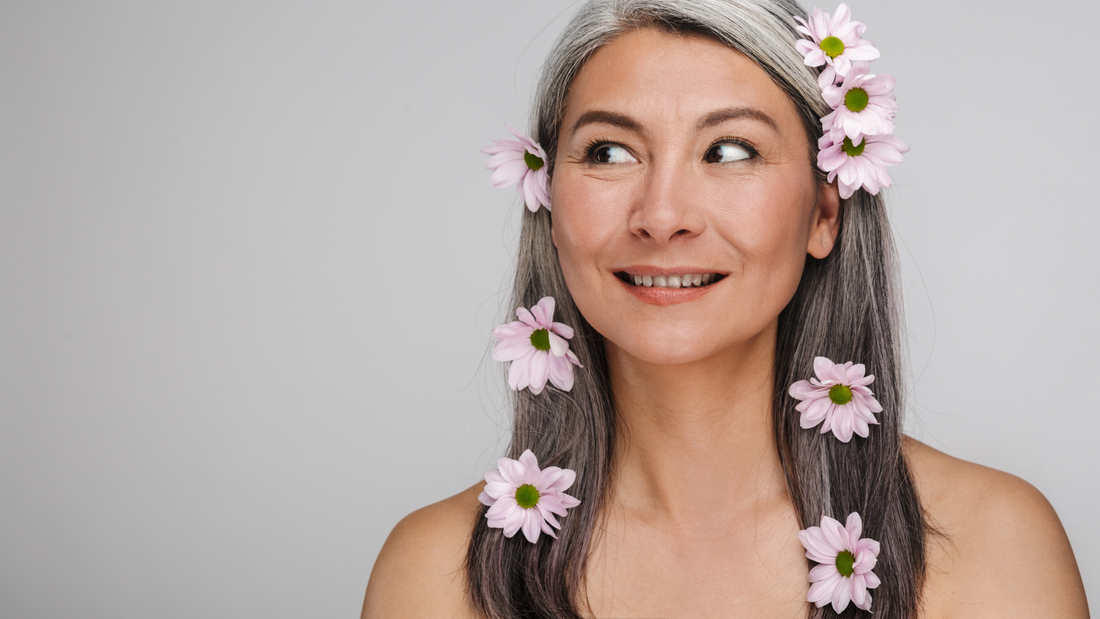A "food baby" or bloated stomach after eating is not only frustrating, it is also sometimes painful and embarrassing. It is a problem that I hear about a lot from many of my menopausal clients who are also dealing with changes in declining hormone levels.
While it might seem harmless, it can sometimes signal underlying digestive issues. Persistent or recurring bloating can be a red flag for various gastrointestinal conditions.
Possible Underlying Digestive Issues
1. Food Intolerances or Sensitivities
- Lactose intolerance: Difficulty digesting lactose in dairy products.
- Gluten sensitivity or celiac disease: Immune reaction to gluten damaging the small intestine.
2. Irritable Bowel Syndrome (IBS): A common condition characterized by bloating, gas, abdominal pain, and changes in bowel habits.
3. Small Intestinal Bacterial Overgrowth (SIBO): Excess bacteria in the small intestine can cause gas and bloating.
4. Gastroparesis: Delayed stomach emptying, leading to a feeling of fullness or bloating after meals.
5. Inflammatory Bowel Disease (IBD): Chronic inflammation in the digestive tract, such as Crohn’s disease or ulcerative colitis.
6. Parasitic or Fungal Infections: Issues like candida overgrowth or intestinal parasites can disrupt gut balance.
7. Poor Gut Motility or Digestive Enzyme Deficiency: Insufficient enzymes can leave food partially digested, causing gas and bloating.
Symptoms to Watch For:If you notice any of these alongside bloating, it may warrant further investigation:
- Chronic or severe abdominal pain.
- Unexplained weight loss.
- Diarrhea, constipation, or irregular bowel movements.
- Persistent fatigue.
- Nausea or vomiting.
- Blood in the stool.
Natural Gut-Healthy Ways to Beat the Bloating:
1. Optimize Your Diet
- Eat smaller, frequent meals to reduce digestive load.
- Avoid trigger foods such as processed foods, high-sodium snacks, and artificial sweeteners.
- Incorporate fibre-rich foods like vegetables, fruits, and whole grains, but gradually to prevent gas.
- Add gut-friendly foods rich in probiotics such as kimchi, kefir, unsweetened yogurt, miso and sauerkraut to keep your gut microbiome healthy.
- Prebiotic foods feed the good bacteria so also include foods such as asparagus, artichoke, leeks, onion, garlic to name a few.
- Avoid artificial sweeteners and sugar alcohols as they may lead to gas and bloating (i.e. xylitol, erythritol).

2. Stay Hydrated
- Drinking water aids digestion and prevents constipation, a common bloating culprit.
- Avoid carbonated beverages and sugary drinks as the sugar can ferment in your digestive tract and cause bloating.
- Avoid too much coffee as it can trigger stomach upset from the acid. Try to reduce your caffeine/coffee intake.
3. Chew Food Thoroughly
Chewing breaks food down, making digestion easier and reducing swallowed air.
4. Herbal Remedies
- Ginger and peppermint can help ease bloating and improve gut motility.
- Fennel seeds and chamomile tea are also excellent for calming digestion.
5. Exercise Regularly
- Gentle activities like walking or yoga stimulate digestion and reduce gas buildup.
- Go for a "fart walk" after eating a meal to release any built-up gas in your belly.

6. Mindful Eating
Avoid rushing meals, eating in stressful environments, or consuming excessive air (e.g., chewing gum, carbonated drinks).
If bloating persists despite these interventions, consider consulting a Holistic Nutritionist who specializes in Gut Health for further evaluation, as early diagnosis can be key to managing more serious digestive issues.

Looking to get to the bottom of your Belly Bloating or other health issues?
Book a 30-minute complimentary wellness call today with Jodie, Founder of Clean Kiss Lifestyle.
About Jodie:
As a certified holistic nutritionist (CNP), non-toxic skincare formulator & skin health expert, and movement teacher, I help ambitious women overcome midlife health challenges such as gut & digestive issues, hormonal balance, skin issues, stress & anxiety, sleep disruptions, exhaustion, and unwanted weight gain.
While experiencing menopausal symptoms is normal, they don't have to dominate your life and render you unable to cope.
Through a personalized health plan focusing on three pillars of nutrition (EAT), movement (MOVE) and non-toxic living (LIVE), I empower women to feel better in order to achieve their career and life goals.
Read more about Clean Kiss Lifestyle and the Holistic Nutrition services they offer to help you Thrive with Vitality in menopause including personalized 1:1 health plans and monthly meal planning memberships.






